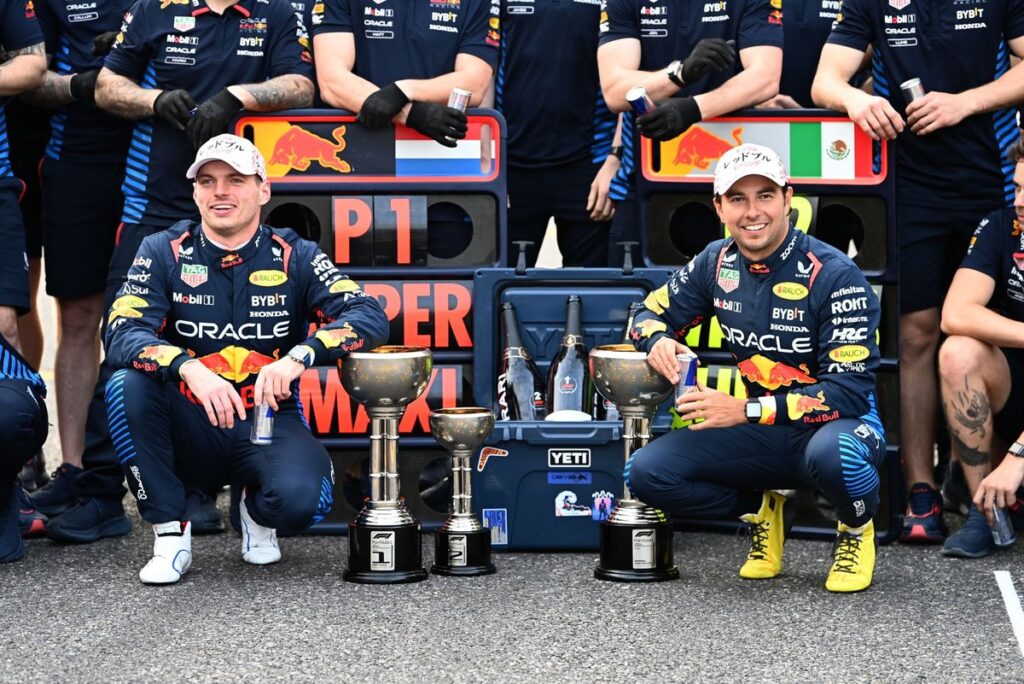Inside Red Bull’s Formula 1 Strategy Team: The Key to Their Success
In the highly competitive world of Formula 1, devising and implementing the perfect race strategy is crucial to a team’s success. At Red Bull Racing, this task falls on the shoulders of three key individuals: Head of race strategy Will Courtenay, principal strategy engineer Hannah Schmitz, and senior strategy engineer Stephen Knowles. Autosport sat down with Courtenay to gain insight into the team’s approach to Formula 1 strategy, tactics, and pit strategy.
Courtenay, who has been with Red Bull since 2003, began his career in electronics before transitioning to the strategy department in 2005. Today, he is responsible for leading the strategy group, which involves rotating duties with Schmitz and Knowles to ensure a fresh perspective at each race.
The team’s approach to strategy involves a rigorous process of data analysis, simulation, and refinement. “We start gathering data in the week leading up to the race, using historic events and other races to inform our models,” Courtenay explains. This data is then used to simulate different scenarios, identifying the most likely strategies and potential risks. During the race weekend, the team refines their approach based on practice data, tyre performance, and other factors.
“We can create a kind of made-up but possible race, and then we’ll do that millions of times over the course of the weekend,” Courtenay says.
Red Bull’s use of Oracle Cloud Infrastructure enables the team to run millions of simulations, providing a comprehensive understanding of possible strategies.
While strategy is crucial to Red Bull’s success, Courtenay emphasizes the importance of teamwork and communication. “We all work quite well together, and not just within the strategy group, but also with race engineering, with Christian [Horner] and everybody else that’s involved,” he notes.
The team’s ability to adapt quickly to changing circumstances is also critical. During the 2022 Hungarian Grand Prix, Max Verstappen’s decision to start on soft tyres, rather than hard, proved instrumental in his victory. Courtenay recalls the rapid discussions between Verstappen, the engineering team, and the strategy group, which ultimately led to a successful change in strategy.
With the field converging in terms of performance, Courtenay believes that strategy will become increasingly important in the coming years. “As the other teams get closer to us, I think strategy for us is now going to become more important again over the coming year or two,” he predicts.
Red Bull’s strong strategic foundation, combined with the skills of their drivers, including Verstappen’s ability to think about strategy during a race, provides a formidable advantage on the track. As the team continues to push the boundaries of what is possible in Formula 1, their focus on strategy, tactics, and pit strategy will remain a key factor in their success.
🔗 Source
